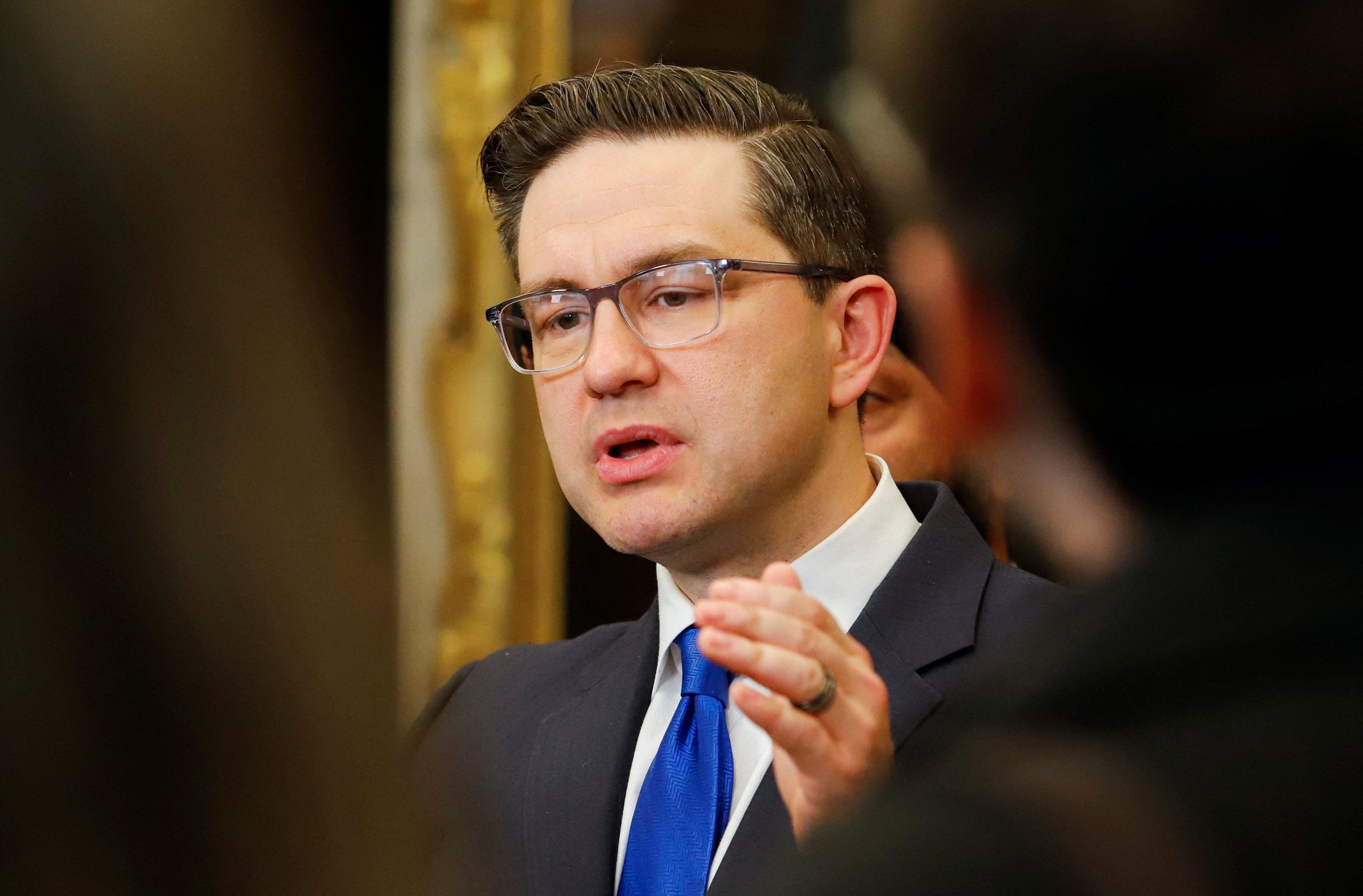September 14, 2023
Taking a page from Republicans throughout the United States, the Conservative Party of Canada put the culture wars on the agenda at its convention in Quebec City last weekend, with an unprecedented focus on transgender issues.
Delegates at the convention took aim at so-called “woke ideology” and passed a series of socially conservative policy resolutions, including on affirmative action hiring practices; opposition to mandatory diversity, equity, and inclusion training; and imposing limits on transgender healthcare for minors. The policies, adopted by the membership, are not binding on party leader Pierre Poilievre, who is up in the polls by about 10% and looking to unseat Prime Minister Justin Trudeau in the next federal election, which is due by October 2025.
The tone of the convention and the socially conservative policies are reminiscent of Republican efforts to make culture war issues a cornerstone of the party’s policy platform in recent years. Bills related to the trans community, and therapies for trans children, have emerged in dozens of states.
Consider that, ahead of the convention, conservative governments in Saskatchewan and New Brunswick pursued policies that require schools to secure permission from parents when a child wishes to change their name or use different pronouns. Similar themes are emerging in other provinces. The national Conservative Party picked up on the theme and ran with it.
The tone of the culture wars are remarkably similar on both sides of the border, but how much they’ll shape the politics of each country may differ.
Conservative leader Pierre Poilievre has somewhat backed away from social conservatism to focus on pocketbook issues, while others – like provincial premiers – have learned into the culture wars. That could be an electoral strategy that will pay off given that Canadians overwhelmingly cite the economy and inflation as core concerns.
What’s more, a recent poll found nearly 80% of Canadians think transgender people should be protected from discrimination. For Poilievre to win in a general election, he’ll have to court many of these Canadians as he can’t just rely on the Conservative base.
Republican presidential nominee hopefuls, on the other hand, are more likely to go all-in on the culture wars, particularly Donald Trump, Ron DeSantis, and Vivek Ramaswamy – at least for now. That’s because a full 69 percent of Republicans feel “the state of moral values” is “a very big problem,” compared to 39 percent of Democrats.
From Your Site Articles
- Ian Explains: Will voters care about "anti-woke" politics in 2024? - GZERO Media ›
- The identity politics trap - GZERO Media ›
- Are identity politics a trap? A conversation with author and political scientist Yascha Mounk - GZERO Media ›
- Has identity politics distracted us from true inclusion? - GZERO Media ›
More For You
TOKYO, JAPAN - FEBRUARY 8: Japan's Prime Minister Sanae Takaichi, leader of the ruling Liberal Democratic Party (LDP), places a red paper rose on the name of an elected candidate at the LDP headquarters on general election day on February 08, 2026 in Tokyo, Japan. Voters across the country headed to polls today as Japan's Lower House election was held.
Photo by Kim Kyung-Hoon - Pool/Getty Images
When Japanese Prime Minister Sanae Takaichi called snap elections last month, it was a big gamble. Holding a winter election just four months into her tenure with no real policy record to run on?
Most Popular
What's Good Wednesdays
What’s Good Wednesdays™, February 11, 2026
Sponsored posts
Football wins, local economy scores
Walmart sponsored posts
Walmart’s $1 billion investment is strengthening associate careers
Tune in on Saturday, February 14th at 12pm ET/6pm CET for the live premiere of our Global Stage from the 2026 Munich Security Conference, where our panel of experts takes aim at the latest global security challenges.
Microsoft unveiled a new set of commitments guiding its community‑first approach to AI infrastructure development. The strategy focuses on energy affordability, water efficiency, job creation, local investment, and AI‑driven skilling. As demand for digital infrastructure accelerates, the company is pushing a new model for responsible datacenter growth — one built on sustainability, economic mobility, and long‑term partnership with the communities that host it. The move signals how AI infrastructure is reshaping local economies and what people expect from the tech shaping their future. Read the full blog here.
Armed Israeli soldiers walk through an alley in the Old City of Hebron, in the occupied West Bank, on February 7, 2026. The Israeli army routinely secures routes and gathering points when settlers visit the city.
Photo by Mosab Shawer/Middle East Images/StringersHub/Sipa USA
The Israeli government unilaterally passed measures that allow Jewish settlers to purchase land in the West Bank, overriding past laws that effectively banned the sale of property there to anyone other than Palestinian residents.
© 2025 GZERO Media. All Rights Reserved | A Eurasia Group media company.
